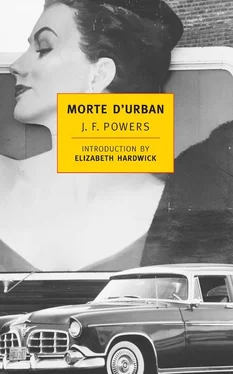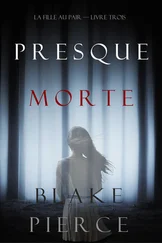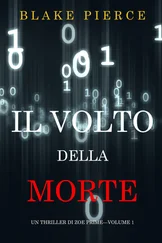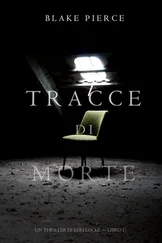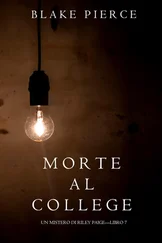Father Urban sat back in his chair, a club chair with an odd cushion, and was suddenly like a man sitting in a floating inner tube. “Then suppose,” he said, sitting forward, “we begin at the beginning. Why Ostergothenburg?”
Dickie said that he’d chosen Ostergothenburg, a highly Catholic community (as Great Plains wasn’t), to be near his mother — it was only an hour’s drive home in his little Porsche — and to be near St Ludwig’s and St Hedwig’s. Among the Dolomites who ran these colleges, one for boys, one for girls, both among the fathers and the sisters, Dickie had friends. He had opened the Eight Seasons in the summer, and had done well enough until late in the fall. Then “Dullinger’s young toughs”—Father Urban gathered that Dickie was referring to Bishop Dullinger’s young clergy — began to visit the Eight Seasons. They came not to buy and not even to browse. They stood around in their great stormcoats, dropping cigarette and cigar butts on the floor and saying whatever came to their minds, if you please. They laughed at the stock of sacred art, jeered at the work of such men as Franklinstein, Varian, and Foo. There had been incidents. Yes, Dickie’s friends and supporters among the Dolomite fathers and sisters had — at least the sisters had — clashed with Dullinger’s young toughs in the Eight Seasons. Unfortunately, it was now off-limits for Dolomites of both sexes, and college students seemed to be avoiding it, too. Here was the heavy hand of Bishop Dullinger. Dickie had been stuck with forty percent of his imported, and therefore unreturnable, Christmas cards. And now the brute (Bishop Dullinger) was refusing to consecrate a chalice purchased at the Eight Seasons, a chalice executed in the manner of Henry Moore. Back before Christmas, a group of laymen, obviously fronting for the diocese, had made Dickie an offer for the Eight Seasons. He’d rejected it out of hand. Then he’d heard a rumor that the diocese was going to open up a store of its own. And now — that very morning — another offer had come from the first group. This time Dickie had listened, but only because he wanted to discuss the matter with his mother and with his friends among the Dolomites. He had been calling St Ludwig’s and St Hedwig’s all day, but hadn’t been able to reach any of his friends, and well…
“Sell,” said Father Urban.
“That’s what I say,” said Mrs Thwaites. “You can’t afford not to.”
“I want to stay on and fight,” Dickie said to the floor.
“No good — not in your business,” Father Urban said. “You’re already finding that out. Did they make you a fair offer?”
“For the location and good will, yes, but nothing for my stock. Oh, they did say they’d take the rosaries and the worst of the books at cost.”
“Unload the rest wherever you can,” Father Urban said. “If the stuff’s as good as you say — and I don’t say it isn’t — that shouldn’t be so hard. I really don’t know too much about it. The only name that meant anything to me was Thomas More. That shows you how much I know about it.”
“Yes, doesn’t it?” said Dickie, in that nasty way he had.
After observing a moment of silence, Father Urban said, “Well, I’m afraid I have to run along.” He’d had enough of Dickie, and Mrs Thwaites looked as though she wanted her sets on.
“Thank you for coming, Father,” she said, “And many thanks for the advice.”
“I know it wasn’t what he wanted to hear,” Father Urban said, though he thought perhaps it was, “but I don’t think it ever pays to buck a bishop in his see.”
“He can’t afford it. Now get up,” Mrs Thwaites said to Dickie, “and see Father Urban out.”
Dickie removed his hands from his hair, rose from the foot-stool, and walked. At the door he passed out ahead of Father Urban. The boy seemed deep in thought. He said nothing until they reached the bottom of the stairs. “I’m bringing out a series of paperback books. Spiritual classics, you might call ’em,” he said, as if he wouldn’t.
“That sounds very worth-while. You’ll publish them yourself?”
“No, I’ll just edit them.”
Father Urban opened the door, as he had upstairs, and again Dickie passed ahead of him. They went down the steps together, and out to the car, Dickie talking. “There’ll be problems, of course, in editing. It won’t be easy. Denzinger’s Enchiridion , ‘the lost books’ of Tertullian — making such works attractive to a sizable audience, perhaps to a large audience, perhaps to a very large audience. Nobody knows what can be done with such works in cheap editions. It’s an experiment that’s never been tried.”
“Well, I must say it sounds very worth-while,” said Father Urban, opening the car door and taking care that Dickie didn’t get in. Father Urban turned off the radio and introduced Dickie, since he was still there, to Jack, and Jack to Dickie — as an author, saying, and hoping memory served him right, “Father’s doing the life of St Adalbert.”
“The apostle to the Slavs?”
“The Bohemian,” Jack said.
“Oh, the apostle to Pomerania. A good sort of man, for a bishop — too good, by all accounts.”
“But I haven’t begun it yet.”
“Let me know how it goes.”
Father Urban drove Jack to the Hill—“No, I won’t come in, thanks”—and then drove himself back to Great Plains, slowly, enjoying the landscape in the moonlight. The hills, under snow, the trees casting shadows, had an enchanted look, the look of night in the north in the movies, and the sky was all broken out with stars. Once, at a bend in the road, the headlights slipped up on some white rabbits playing in a field. Father Urban hadn’t realized that rabbits had such fun. The world was really a beautiful place. He rolled along enjoying it all, oblivious of himself, until he entered the city limits of Great Plains. He was sorry that he’d have only two or three more days with the car, which he’d come to depend on, and he was going to miss the deep satisfaction there was in doing the work of a parish priest — his daily Mass meant even more to him at St Monica’s. He had done well there in the last five weeks. Could he have done better? He did not think so. His record would speak for itself.
• Mrs Burns, freed from the telephone, given a new lease on life.
• Johnny Chumley rehabilitated.
• People polled on new church — and pollinated.
• Parish life now a reality.
• Attendance at daily Mass up 150 percent (eight — ten people now made it).
• Mission — most successful in history of parish.
• All-around good work for the Order.
• Mrs Thwaites.
Here, until that evening, there hadn’t been much to cheer about. At the end of each week, Father Urban received an envelope with a fifty-dollar bill in it, but this, though more than it might have been — it might easily have been nothing — was probably no more than Phil had been getting. Father Urban had heard Mrs Thwaites’s confession once, and had talked over her chances in the next world, giving her all the reassurance he could — which wasn’t quite enough, he’d felt. Mrs Thwaites was pretty much as Monsignor Renton had described her, in that respect. But it now appeared that Father Urban, without knowing it, had scored somewhere along the line. Otherwise why would Mrs. Thwaites have tried him out in the role of adviser? And since this was a role he might be asked to play again, having played it well once, it probably had to be rated as the greatest of his achievements while at St Monica’s. Much good could come from it, for the Order.
It was almost ten when Father Urban arrived back at the rectory, but a young man was waiting for him. The young man was wearing a short coat made of the same material as Wilf’s long devil’s-food one, but green, and he needed a shave. He said he wasn’t a Catholic but was married to “one.” He said his children were being brought up as Catholics. He said, “What more do you want?”
Читать дальше
